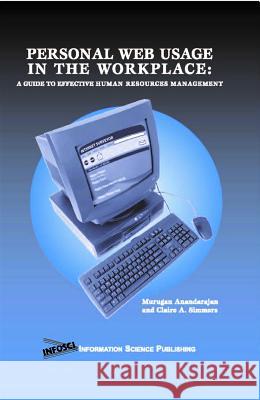Personal Web Usage in the Workplace: A Guide to Effective Human Resources Management » książka
Personal Web Usage in the Workplace: A Guide to Effective Human Resources Management
ISBN-13: 9781591401483 / Angielski / Twarda / 2003 / 292 str.
An important aspect of managing human capital in the 21st century workplace is managing the interface between humans and information technology, particularly the World Wide Web. The Web has changed not only how and where business is conducted, but also how and where work is done. Personal web usage has created many desirable organizational outcomes such as, reducing the cost of communication, restructuring how work is performed. However, it has also generated undesirable outcomes, for instance, loss of intellectual property, sexual harassment lawsuits, productivity losses due to surfing usage, security threats, and network bandwidth overload by visiting web sites for travel, leisure, and sports, and news. The mechanisms controlling the interface of individual and institution in this flexible, open, autonomous work environment created by the Web are emergent phenomena, and the lines between legitimate usage and usage are just beginning to be understood. This examines topics which embrace a wide array of Personal Web Usage issues such as antecedents of Web usage, frameworks/models of Web usage, Web technologies for monitoring usage, Web usage within other cultures and countries, Meas











